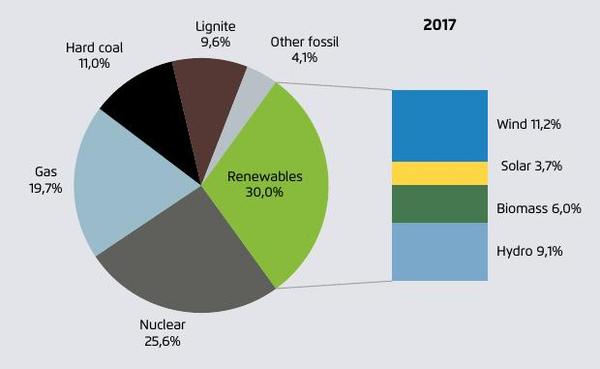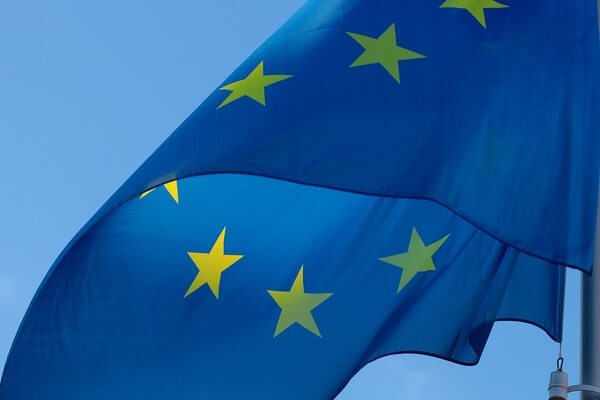News Release from windfair.net
Wind Industry Profile of
Stronger Together: Combined Expansion of Renewables Ensures Electricity Supply
Share of Renewables Rises
The German Weather Service (DWD) has now investigated this question scientifically, as renewable energies undoubtedly make us more dependent on the weather. Nevertheless, for the first time ever, more electricity was produced from wind, sun and biomass in the European Union last year than from coal and lignite combined, as German think tank Agora Energiewende recently announced. Nevertheless, Germany's security of energy supply remains very high, as reported by the Federal Ministry of Economics and Technology: "The probability that electricity demand in Germany will be met at all times in the period under review of 2018/19 and 2023/24 remains almost 100%.”
DWD supports the expansion of renewable energies in Germany and Europe by researching the meteorological framework conditions. In a Europe-wide study, aim has been to determine for the first time how much electricity production from sun and wind actually fluctuates as a result of weather conditions and what possibilities exist, at least from a meteorological point of view, to reduce yield losses in regenerative electricity production. For the first time, modern measurement methods and extensive data sets collected over the past decades by measuring satellites, among others, allow for concrete statements to be made.

The share of renewable energies in Europe continues to increase (Image: Agora Energiewende)
Setup of the Measurements
Initially, an exemplary evaluation was made of how often the average energy production from wind and sun remained below ten percent of the nominal output in certain areas over a period of 48 hours. In the case of onshore wind turbines, this incident occurred approximately 23 times a year on average. Adding Germany's offshore wind farms, this figure falls to around 13 times a year. Dr. Paul Becker, Vice President of the DWD, emphasized the growing importance of the offshore wind industry when presenting the figures: "Offshore wind power can play a key role in the success of the long-term energy transition, also with regard to security of supply and reduction of overall costs.”
Combined with the power output of photovoltaic systems, the figure continues to fall: the model case occurs not more often than two times a year. In a further step, energy production from other European countries was added, resulting in only 0.2 sample cases per year. According to the weather experts, this in turn underscores the need for a cross-border electricity network that enables large-scale electricity exchange and thus contributes to grid stability in all countries.

A cross-border electricity supply is necessary to ensure security of supply in the EU (Image: Pixabay)
Call for a United European Energy Policy
Matthias Buck, Head of European Energy Policy at Agora Energiewende, explains how he envisages Europe's future energy policy: "In recent years, the development of renewable energies in Europe has been strongly influenced by the success story of wind energy in Great Britain and Germany. But only if all countries in Europe are equally committed to renewable energies will it be possible to achieve a 35 percent share of energy consumption by 2030. Photovoltaics can make a much greater contribution to this than before. Compared to its potential and its now very low costs, it plays a far too small role."
However, the further expansion of renewables alone is not enough, as Becker emphasizes: "From a meteorological point of view, there is nothing to prevent the further expansion of renewable energies in Germany and Europe. However, as the weather does what it wants, we can never rule out the possibility that an extreme wind calm will occur along with a period of low sunshine over Europe. A responsible energy policy must therefore not only focus on the expansion of wind power and photovoltaics, but at the same time ensure that there is sufficient reserve capacity."
Only if this segment will be expanded accordingly, a regenerative power supply can guarantee that the lights will not go out in the future if the wind won't blow and the sun won't shine.
- Author:
- Katrin Radtke
- Email:
- press@windfair.net
- Keywords:
- DWD, weather, wind, solar, EU, Germany, reserve, Agora Energiewende, storage




























